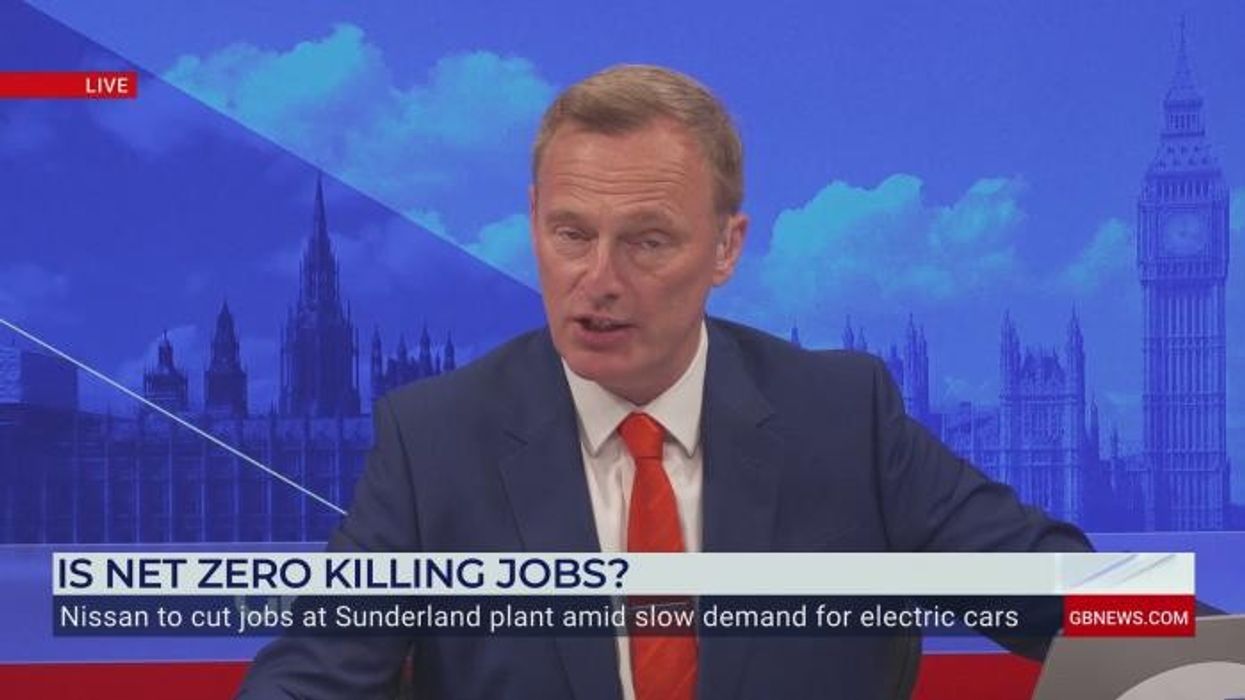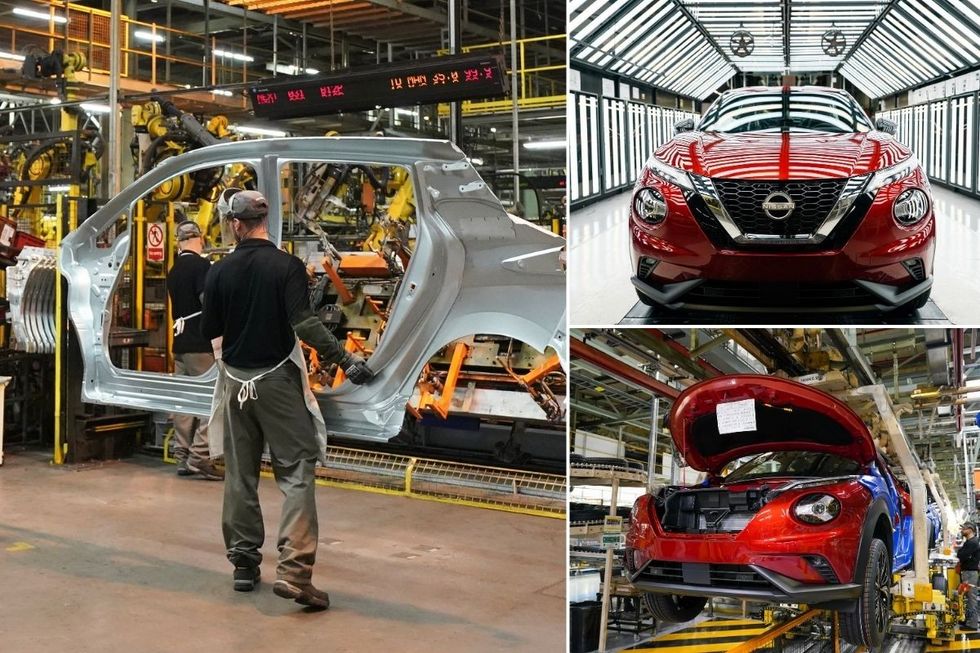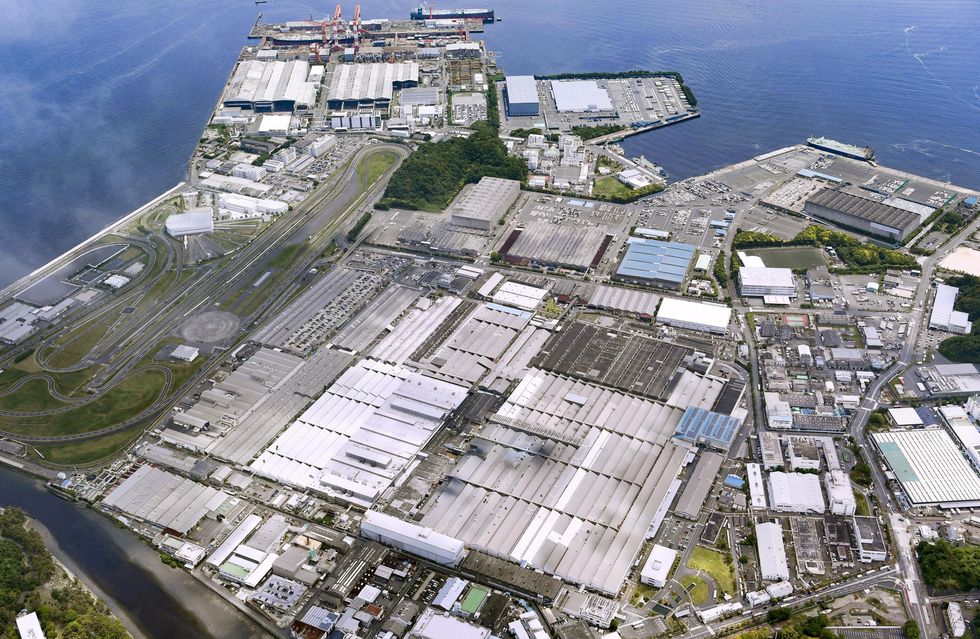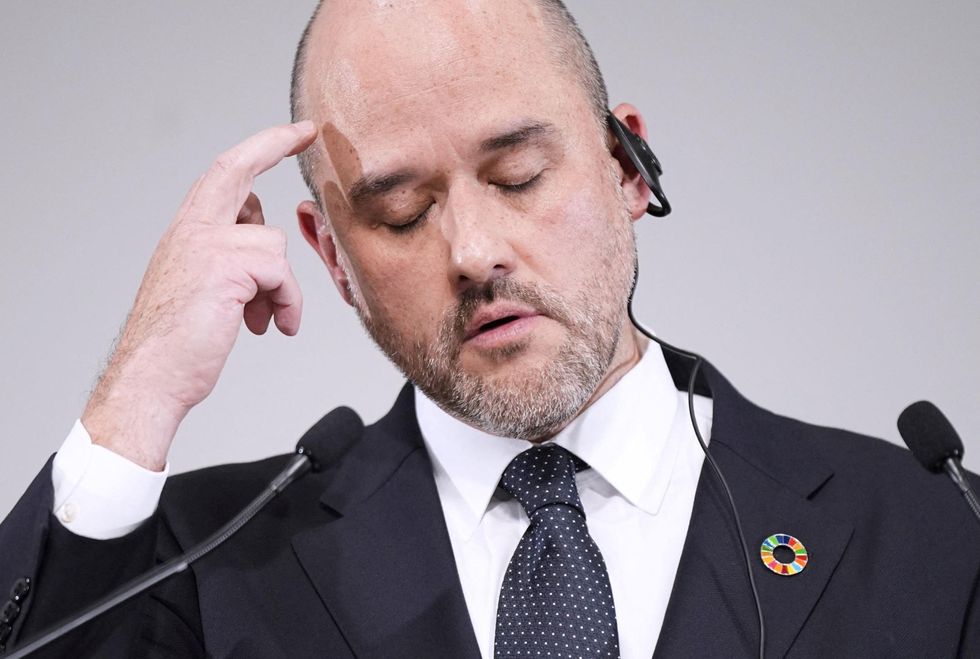Nissan to end production at iconic factory amid plan to cut 20k jobs as Sunderland plant remains impacted

WATCH: Is net zero killing jobs? Nissan plans to slash 250 jobs from its Sunderland factory
|GB NEWS

The CEO of Nissan said the decision to close the factories was 'tough but necessary'
Don't Miss
Most Read
Nissan has revealed plans to shut down vehicle production at its historic Oppama Plant by the end of 2027, as the brand continues to slash costs after poor vehicle sales.
The closure forms part of the Japanese carmaker's Re:Nissan recovery programme, which seeks to slash global production capacity from 3.5 million to 2.5 million units while achieving full plant utilisation rates.
As part of the closure, Nissan will be transferring all manufacturing operations to Nissan Motor Kyushu in Fukuoka Prefecture.
The restructuring will also see Nissan reduce its production sites from 17 to 10 around the world.
Do you have a story you'd like to share? Get in touch by emailing motoring@gbnews.uk

Nissan said it would be cutting 20,000 jobs worldwide and closing several factories
|PA
Both existing and future models currently slated for Oppama will be relocated to the Kyushu facility as the company pursues improved cost efficiency and enhanced competitiveness in its domestic manufacturing operations.
Nissan's chief executive, Ivan Espinosa, acknowledged the gravity of the decision, describing it as "tough but necessary" for the company's future sustainability.
The 54-year-old added: "It wasn't easy for me or for the company - but I believe it's a vital step toward overcoming our current challenges and building a sustainable future."
He paid tribute to the Oppama Plant's heritage, adding: "The Oppama Plant is a proud part of our history, and its legacy will endure."
READ MORE: Nissan to cut hundreds of jobs at Sunderland factory despite £2bn electric car investment

The Oppama plant in Yokosuka, Japan, will close in 2027
|REUTERS
The CEO expressed gratitude to staff, the local community and partners, pledging continued support for the Oppama area.
Crucially, other facilities within the Oppama district—including the Nissan Research Centre, Grandrive, crash test facility and Oppama Wharf—will continue operating without disruption.
The restructuring represents a significant downsizing of Nissan's manufacturing footprint outside China.
Nissan aims to maintain approximately 100 per cent plant utilisation rates across its remaining facilities whilst dramatically reducing overall capacity.
LATEST DEVELOPMENTS:
- Vauxhall owner Stellantis axes hydrogen vehicle production with 'no prospects' for 'niche market'
- Cyclists caught breaking more traffic rules than drivers across London with offenders facing £1,000 penalties
- Major car brands make feelings clear on Labour's new electric vehicle grant - 'Even more affordable'
In Japan specifically, Nissan determined that consolidating Oppama's operations into Nissan Motor Kyushu offered the optimal solution based on production capacity, cost considerations and investment potential.
The transfer is anticipated to substantially lower domestic manufacturing costs whilst bolstering plant competitiveness and product profitability.
The company indicated that associated costs for the restructuring remain under evaluation and will be disclosed during the forthcoming first quarter financial results announcement.
It pledged to establish clear policies regarding future employment and work arrangements, with plans to communicate these to affected staff and commence union discussions once decisions are finalised.

Nissan CEO Ivan Espinosa announced the closure of the Oppama plant at a press conference
|REUTERS
Nissan's Sunderland plant will also see around 250 staff lose their jobs through a voluntary leave scheme for shop floor and office staff.
Around 6,000 people work at the facility in Sunderland, making it the largest employer in the city, although the company has dealt with turmoil in recent years.
The brand's senior vice president for manufacturing said that the UK was "not a competitive place to be building cars" because of high energy costs.
Alan Johnson told MPs in April that Nissan pays more for electricity at its Sunderland factory than any of its other plants across the globe.










